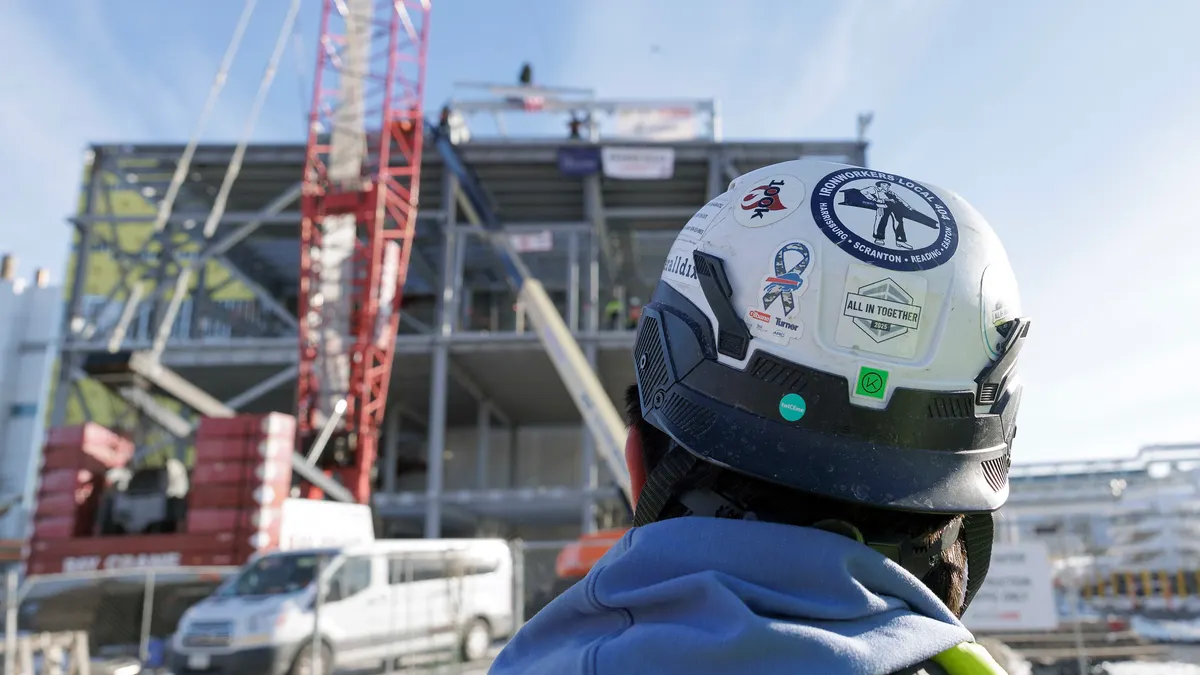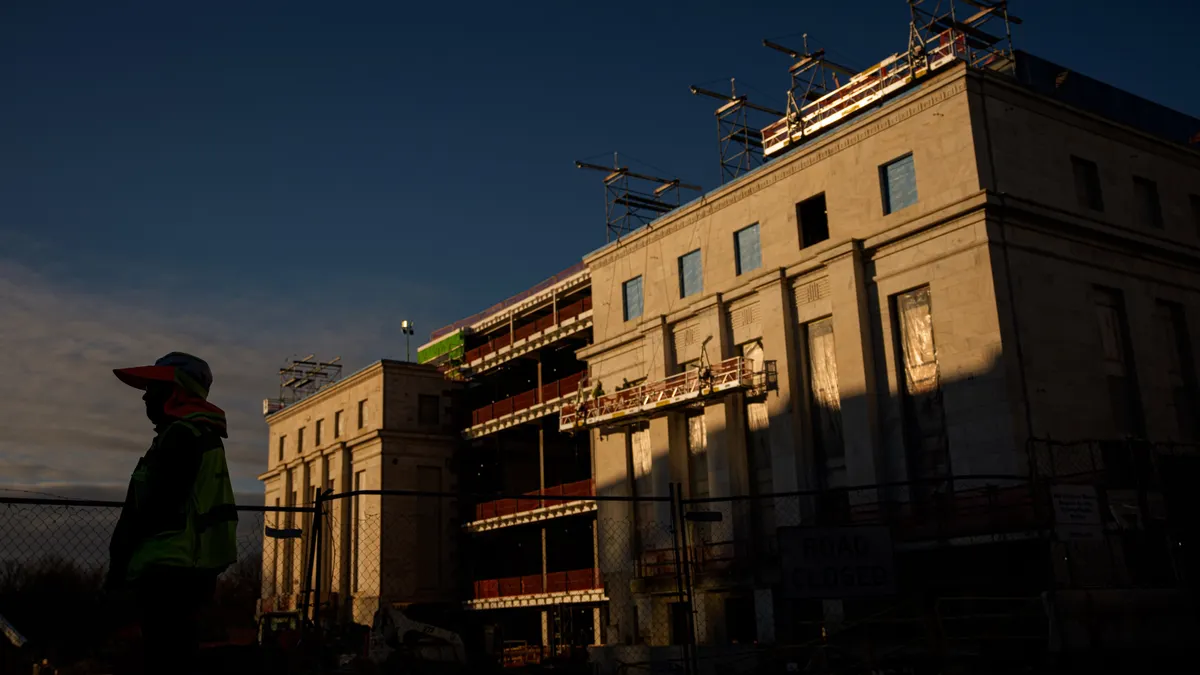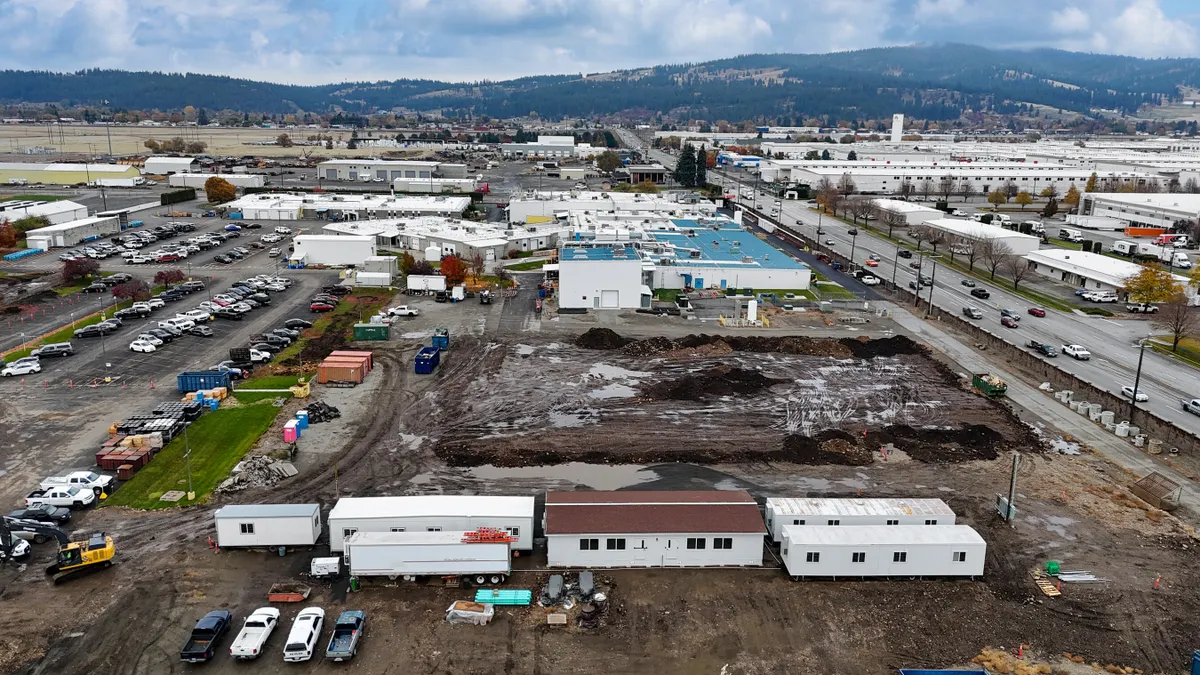The construction industry has a labor problem. Today, construction activity is holding at 2007 levels, but there are 100,000 fewer workers to help complete those projects.
Between April 2006 and January 2011, the industry shed 40% of its workforce, or around 2.3 million people, in large part due to the housing bust. What’s more, of those workers, six in 10 left the construction industry — or even the workplace entirely — by 2013.
Part of the issue, one Turner Construction Company executive testified before a U.S. Senate subcommittee, is that younger people simply aren’t choosing to follow career paths in the industry. Though 74% of adults ages 18 to 25 say they know what career fields they want to enter, only 3% chose the construction trades, according to a recent survey by the National Association of Home Builders. Of those who were undecided, 63% said there was little to no chance they would consider the construction trades, regardless of their potential earnings.
Insufficient access to vocational training is one reason for the low interest levels among young adults. Another is that the current construction workforce is getting older, and many workers are aging out without younger replacements following behind. Though the median age of construction workers is 41 years old, the workforce is trending older in parts of the Northeast and Midwest, in particular.
As a result, construction companies need to be strategic about attracting and retaining individuals from underrepresented groups, particularly people of color and women. In the U.S., women make up only 9% of the construction workforce, with an even smaller percentage in the trades and in executive positions.
Stephanie Crepeau is one next-generation construction professional who is making herself known in the industry. Crepeau is in her final semester as a construction management student at Wentworth Institute of Technology, in Boston. In addition to classes and time on the job site, Crepeau also hosts a radio show at Wentworth that highlights local women in the industry.
Construction Dive spoke with Crepeau, who is about to start work as a field engineer with Bond Brothers Construction in Boston, MA, about her time as a construction student, her experience starting and hosting a radio show and some of the best advice she's learned from women leaders in construction.
Editor’s Note: This interview has been edited and condensed.
What got you interested in construction management and the industry in general?
CREPEAU: I’ve always had a fascination with putting things together and watching them come to life. When I was in middle school, I was doing woodworking and I really loved wood shop. When I started high school, I went from woodworking into residential construction, and that brought me to Wentworth with construction management.
I didn't know construction management was a legitimate college major — I'd never heard of it before, but I love watching buildings come together. I never really understood that until I found my program.
What are some of the practical experiences you’ve had so far at Wentworth?
CREPEAU: Wentworth has a trimester setup and we do co-ops (internships), during which we'll spend a semester working with a company in the real world.
In fall 2016, I co-oped with Hensel Phelps' Mid-Atlantic District as a field engineer. I was boots on the ground every day, talking with subcontractors, coordinating daily activities and making sure we had a list of goals and were hitting them.
My sophomore year, I got to work with Bond Brothers. Then I worked part-time with Skanska in their owner's rep division at a high school. My junior spring, I got to work with Consigli Construction as a scheduling intern.
I really diversified my experiences, which has been to my benefit. It’s helped me develop academically because now I have gone back to classes and said, 'Wow, I did this on co-op and now I'm doing it more in class.’
How do you think the industry can attract more young people, especially women?
CREPEAU: I’ve always benefited by going out there and exploring and stumbling across opportunities and following my passions. When I was younger, I liked putting together Legos and doing woodworking. I had nontraditional interests for a girl, and I wish there were more opportunities for young people and especially young women.
Another thing I'm really passionate about is career and technical education because, above all, that's been one of the biggest things for me. I wish career and technical education programs were a staple in schools everywhere. I always believed that if you want to be a carpenter you should go and be a carpenter — there’s nothing wrong with not getting a four-year degree.
So, in your spare time, you run an internet radio show about women in construction. What gave you the idea to start that?
CREPEAU: I already had the idea in the back of my head. What sparked it was a meeting I attended at the Associated General Contractors’ Building Women in Construction group. I was the only student sitting among all these professional women and we were throwing around ideas like “How can we get our message out? How can we best support young women and get them more interested in construction in general?”
I threw my hand up, nervously, and said we could do a radio show because we have a station at school. The show is a unique way to get women construction workers' message across because it's somebody telling their story in their own words and it can be shared anywhere. I've talked to women from companies like Lee Kennedy, Commodore Builders and Gilbane.
What are some of the common themes you hear from the women on the show?
CREPEAU: One thing I like to ask a lot is about positional power. In the beginning, I talked to a lot of women who were project managers or directors of specific areas and asked them how they deal with conflict. When I was an intern, sometimes somebody would make a comment I was kind of uncomfortable with; I couldn't believe they'd say something like that, but I'd think, "I'm an intern, so I don't think it's my place to say something."
One thing I’ve learned through asking those kinds of questions is that women are tough. We're resilient and we sometimes don't even notice, or we just brush it off our shoulders and keep going. I've also noticed when an inappropriate comment is made, you need to speak up and make a point of saying, "Hey, you know that made me uncomfortable and I know you didn't mean it that way, but that's how it came across."
How do you think you’ll translate what you’re learning in those interviews into your own career?
CREPEAU: A lot of it is not being scared, being confident in my abilities and knowing how to pause before I act. Maybe you won’t always have the right answer or you won't always make the right choice, but mistakes are going to happen and you can’t really be so hard on yourself.
What’s one of the best pieces of advice or knowledge you’ve gotten from the show?
CREPEAU: There have been so many things they've shared with me that are really smart — it's not just construction stuff. A lot of them have given interpersonal advice like being a good listener. Another thing I've learned throughout all of this is to stand up for yourself and don't be afraid to have a voice at the table.
How are you applying what you've learned from the show and your construction program in the field?
CREPEAU: A lot of what I'll take away from the show and my experiences in the program is interpersonal skills and not being afraid to ask questions. When I started my journey, I was nervous to ask questions because I didn't want people to think I was dumb or I was just some girl who didn't know what she was doing. But doing this show, and having gone through all my co-ops and the program, I learned that it's OK to ask questions — it can only help you.
What would you like industry leaders to know about the next generation of construction professionals, particularly women?
CREPEAU: I want them to know that we’re really adaptable and we’re very in tune with technology. Sometimes we young people may have a great idea or at least some idea in general and we are afraid to voice it. To be given the power to be empowered is very key for our generation because we’re doers. We’re not afraid to go after things. When I was on co-op that was the biggest thing for me. I was empowered to make decisions and to go out and do things. If I messed up, I was probably going to have to go and fix it, but it was still okay to mess up.




















